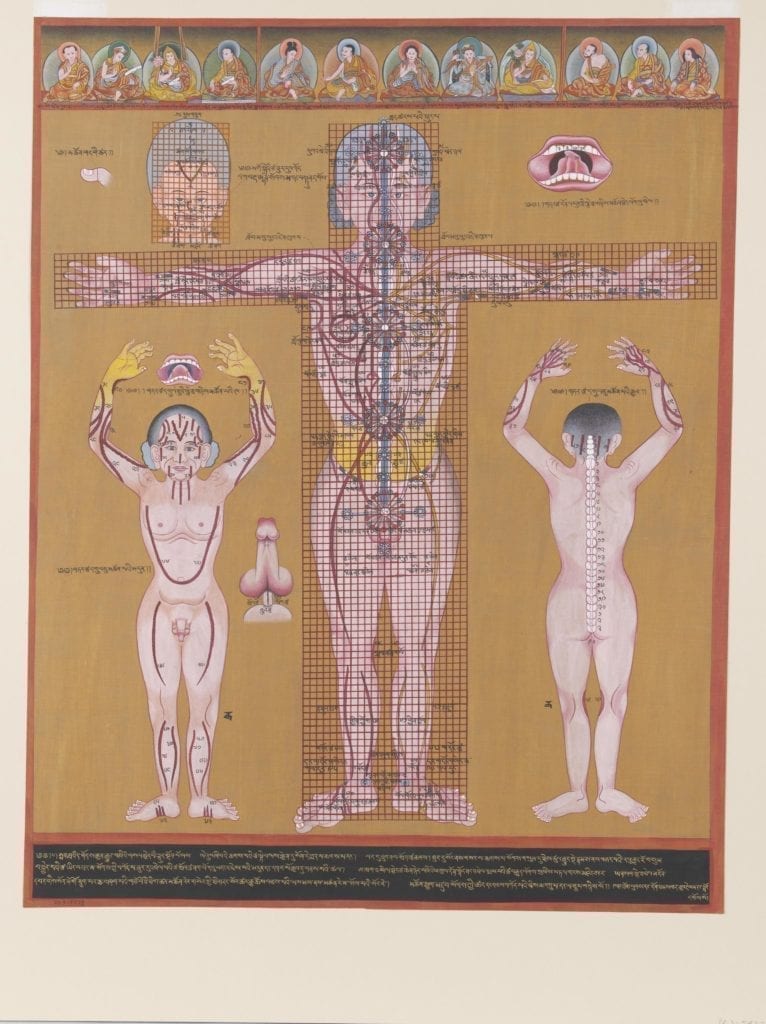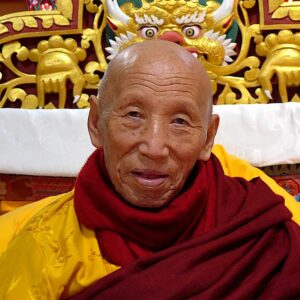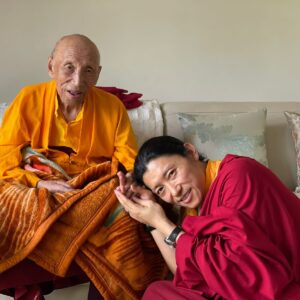During these stressful times, Tibetan Medicine may offer us some tools for bringing our body and mind into balance. Our sangha member and Dakini Doctor, Dr. Tawni Tidwell presented a video program at the Rubin Museum of Art in NYC in conjunction with the Center for Healthy Minds at the University of Wisconsin-Madison in April 2020. As the global pandemic continues to affect sentient beings throughout the world, we would like to share those presentations with our wider audience.
Tawni shares very simple and practical practices that we can immediately implement into our daily routines. In these short videos, she gives us tools that are easy to follow and help us refresh our bodies and mind.
These times can feel uncertain and many are searching for health and balance while facing exposure to the continuing spread of Covid-19 and its accompanying stressors. Tibetan medicine may provide useful tools for gentle yet important self-care during this time. Tibetan medical philosophy recognizes that the mind and body have the innate ability to bring about healing, yet inextricably depend on relationships with the world around us. These interdependencies are critical to cultivating external and internal balance. Tawni’s guidance helps us to begin to explore these relationships and bring our bodies and minds more into balance.
Watch the series

Dr. Tawni Tidwell is a biocultural anthropologist (PhD, Emory University) and a Tibetan medical doctor (“amchi”/“menpa” Kachupa level), the first Westerner to have formally completed her Tibetan medical education in a Tibetan institution alongside Tibetan peers. Dr. Tidwell trained at Men-Tsee-Khang in north India and at the Sorig Loling Tibetan Medical College of Qinghai University in eastern Tibet. She completed a five-year program followed by a one-year internship and subsequent apprenticeships with master physicians across the Tibetan Plateau. Dr. Tidwell’s doctoral dissertation integrated insights from contemporary neuroscience, Buddhist epistemology, and biocultural anthropology to understand how Tibetan physicians learn embodied diagnostic practices, particularly for cancer and metabolic disorders.
She looks at Tibetan medical training as developing the “physician as embodied diagnostic instrument” through cultivation of rigorous technical and perceptual skills. Previously at the Austrian Academy of Sciences and now at the Center for Healthy Minds in Madison, Wisconsin, Dr. Tidwell examines paradigms of transformation; how complex techniques are able to transmogrify toxins into medicines, trauma into healing and resilience. Dr. Tidwell draws on her extensive background in ecology and wilderness survival and her apprenticeship in Tibet in order to seek an integral understanding of the ecological relationships that sustain transformative work from within and without.










Responses